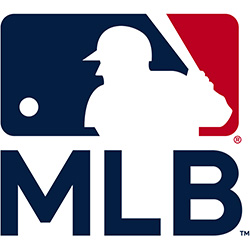 Urged to move forward by 18 attorneys general, the U.S. Supreme Court could take another run at reevaluating the MLB antitrust exemption in a case filed by the Tri-City ValleyCats and the Norwich Sea Unicorns after both teams and much of the NY-Penn League were booted from affiliated ranks in 2020.
Urged to move forward by 18 attorneys general, the U.S. Supreme Court could take another run at reevaluating the MLB antitrust exemption in a case filed by the Tri-City ValleyCats and the Norwich Sea Unicorns after both teams and much of the NY-Penn League were booted from affiliated ranks in 2020.
The civil complaint, filed by David Lender (of Weil, Gotshal & Manges LLP) and Jim Quinn (Berg & Androphy, formerly of Weil) in U.S. District Court in the Southern District of New York in 2021, argues that MLB overstepped its bounds in eliminating affiliations with 40 MiLB teams, deeming it a “unlawful group boycott” and acting in an uncompetitive fashion: “The Takeover Plan is nothing more than a naked, horizontal agreement to cement MLB’s dominance over all professional baseball and to reduce output and boycott the 40 Ousted Teams from MLB affiliation.”
The complaint also argues that MLB should not have unilaterally decided what teams were part of the new 120, but allowed the free market to let teams bid on remaining in MiLB while conforming to state antitrust laws. It also singles out teams owned by MLB teams and MiLB teams with a significant MLB investment and criticizes the Supreme Court’s decision to block enforcement of state antitrust laws as well. At the time, MLB’s political argument was that the creation of the MLB Draft League (then known as the Dream League) was a suitable alternative to affiliation and that MLB’s takeover was due to MiLB’s refusal to address facilities issues.
The ValleyCats ended up in MLB Partner League Frontier League, while the Sea Unicorns ended up in the summer-collegiate Futures League. Many, but not all NY-Penn League teams were eliminated from affiliated ranks, as well as the entire Frontier League. There’s no doubt losses of affiliations led to a very measurable decrease in the value of the teams.
Challenging MLB’s antitrust exemption is not an uncommon effort in the U.S. legal system, and even reaching the U.S. Supreme Court docket would be a triumph. We have seen such efforts rebuffed as recently as 2018 and 2015, but opponents have gunned for its reversal since 1922, when the court originally held that baseball was entertainment and not interstate commerce. That decision was affirmed in 1953 and 1972 court decisions; the 1972 case involving Curt Flood’s attempt to strike down the MLB reserve clause was initially decided against Flood, but subsequent mediation eliminated the reserve clause, leaving the antitrust exemption intact.
One way this challenge is different: it’s now backed by 18 attorneys general who have filed amicus briefs urging the court to hear arguments on the lawsuit. They raise a variety of issues, ranging from states’ rights (surely a popular topic among the current Supreme Court lineup) and the lack of Congressional instruction regarding antitrust (much of the status quo stems from the original 1922 case, though Congress did address the topic in the 1998 Curt Flood Act).
Joining the effort this week: New York Attorney General Letitia James, whose state saw four teams (Auburn, Batavia, Staten Island and Tri-City) lose their affiliations. Also signing on to the amicus brief: attorneys general of Arizona, Colorado, Connecticut, Indiana, Kansas, Louisiana, Massachusetts, Minnesota, Montana, New Jersey, New Mexico, Pennsylvania, Tennessee, Vermont, Virginia, West Virginia, and the District of Columbia. Not every state saw teams contracted—ironically, Minnesota AG Keith Ellison signed on to the amicus brief despite the only MiLB team in his state, the St. Paul Saints, benefit from MLB’s contraction and reorganization.
“Baseball may be ‘America’s Pastime,’ but it should also have to play by America’s laws that govern monopolies,” James said via press release. “Minor league clubs are part of the fabric of hundreds of communities throughout the nation that don’t have nearby access to a Major League Baseball stadium. By calling these clubs out of the system, Major League Baseball is punishing the fans and local communities. I am proud to stand with this bipartisan coalition of attorneys general to protect these minor league teams, and to empower millions of Americans to head out to the local ballgame.”
RELATED STORIES: Four former MiLB teams challenge MLB’s antitrust exemption in U.S. District Court; Supreme Court Yet Again Declines to Strike Down MLB Antitrust Exemption;
Supreme Court: No reexamination of MLB antitrust exemption; Could Supreme Court take on MLB antitrust exemption?; Bunning: Cubs best argument to eliminate MLB antitrust exemption; Appeals court puts San Jose antitrust lawsuit on fast track
